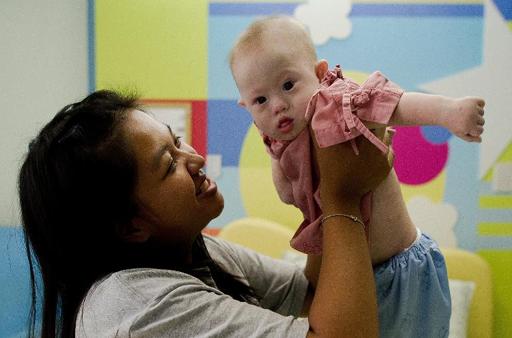Thailand has passed a law banning foreign couples from using Thai women as surrogates after a series of high-profile scandals tainting the image of the unregulated industry.
The legislation was unanimously approved by Thailand's junta-picked parliament on Thursday in a bill spurred by the case of an Australian couple accused of abandoning a baby with Down's syndrome while taking his healthy twin sister borne by a Thai surrogate.
"Thailand and its women's uteruses will no longer be a hub" for surrogacy, said National Legislative Assembly member Wallop Tungkananurak.
Under the new law, likely to be enforced by June, only Thai couples or those where at least one partner comes from Thailand will be eligible to use surrogates in the kingdom.
They will have to prove that they are unable to bear children and have no relatives to act as surrogates on their behalf.
Anyone found breaching the law could face up to 10 years in jail, said Wallop.
Commercial surrogacy is officially banned by the Medical Council of Thailand and authorities moved to close several IVF clinics in the weeks after the scandal over the Australian couple last August.
The pair denied deliberately leaving the boy, called Gammy, with the Thai surrogate mother, who was paid around $15,000 to carry the twins.
Gammy's biological father, David Farnell, a convicted sex offender, is under investigation by Australian authorities regarding the wellbeing and safety of the baby's twin, Pipah.
Dozens of foreign couples were thought to have been left in limbo after entering into surrogacy arrangements through clinics in Thailand before last year's scandals.




















































